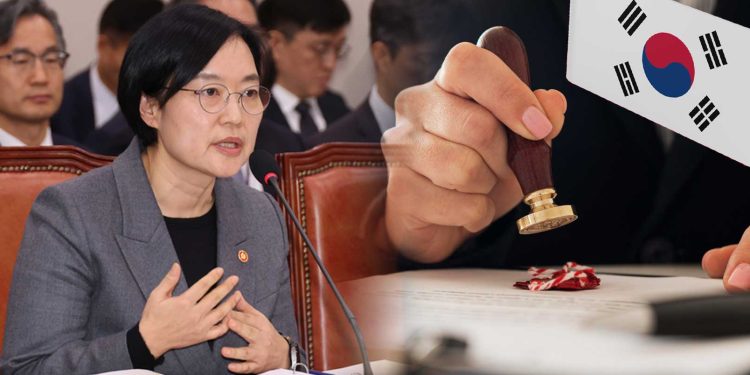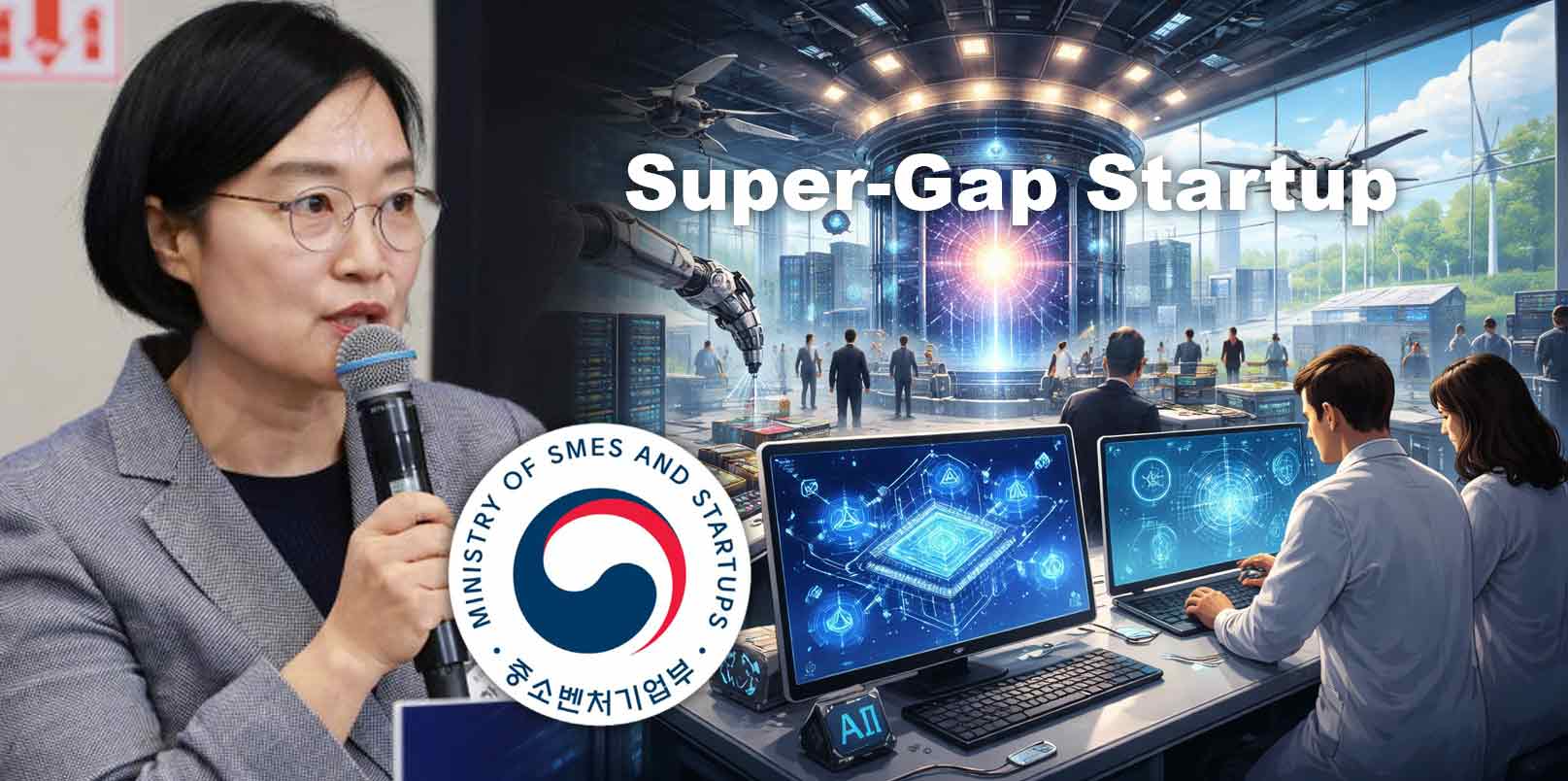The next phase of Korea’s 2025 National Assembly audit placed the Ministry of SMEs and Startups (MSS) under a sharper lens than ever, revealing how the nation’s startup and SME strategy must evolve beyond funding toward global competitiveness. The debate over AI data access, IP protection, and venture globalization marks a pivotal test for Korea’s ambition to become one of the world’s leading venture powers.
2025 National Assembly Audit Further Puts MSS Policy Direction Under Scrutiny
At the latest session of Korea’s 2025 National Assembly audit on the Ministry of SMEs and Startups (MSS), lawmakers placed a sharp focus on how the ministry must evolve to meet global competitiveness demands.
The session covered major structural issues, including AI data accessibility, prevention of technology theft, small business policy reform, fair digital platform trade, and global startup expansion.
Held on October 29, 2025, by the Industry, Trade, and SMEs Committee, the audit underscored that Korea’s SME and startup policies need more agility and real-world impact—especially as artificial intelligence, intellectual property disputes, and cross-border business risks redefine the operating environment for small and medium enterprises.
Lawmakers Call for Action on AI Data Accessibility and TDM Exception
Following the previous concern on the safety of overseas Korean SMEs amid Cambodia-Korea issue, lawmaker Kim Dong-ah (Democratic Party) further emphasized that the AI industry’s competitiveness depends on data utilization, urging the government to introduce a Text and Data Mining (TDM) exemption clause to alleviate copyright-related barriers in AI model training.
Kim Dong-ah demanded,
“Major economies such as the EU, Japan, and Singapore have already implemented such frameworks. Without improving access to learning data, it will be difficult for Korea to sustain innovation.”
In response, Minister Han Seong-sook said the MSS is working with the Ministry of Culture, Sports and Tourism to expand the availability of public datasets usable for AI training, signaling that the government is preparing to align domestic policy with international standards on data accessibility.
Technology Theft and Weak Legal Remedies Under Review
Technology misappropriation was another central issue. Representative Kim Jeong-ho highlighted that win rates and compensation levels for SMEs in tech theft cases remain low, calling for a Korean-style discovery and joint representation systems for patent attorneys to strengthen legal recourse for smaller companies.
Mok Seong-ho, acting director of MSS’s Intellectual Property Office, said the ministry is consulting with the Ministry of Justice to implement the new discovery system within the year.
Representative Song Jae-bong then added that administrative investigations into tech theft lack effectiveness, citing data that out of 77 cases reported in the past five years, only 13 resulted in corrective recommendations. He also noted that mediation agreements have no binding power.
Minister Han responded that the MSS is reviewing ways to build an expert-led damage assessment system and to reinforce investigative enforcement capacity.
“A pan-government task force has been launched, and we will work to secure sufficient budgetary resources.”
SME Export Pressures and Trade Risks Demand Stronger Safeguards
The discussion also turned to SME export resilience and the impact of global tradetensions, including the Korea–U.S. tariff agreement.
Representative Park Hyeong-soo (People Power Party) criticized current support measures,
“Information sessions and loan programs alone are insufficient. The government must provide practical damage support and sector-specific measures for affected SMEs.”
Global Startup Policy Shifts: From Domestic Saturation to International Scale
As Korea’s domestic market becomes increasingly competitive, lawmakers also urged a paradigm shift toward global entrepreneurship.
Representative Lee Eon-joo pointed to the decline in domestic unicorn creation and slower startup formation, arguing that policies must now focus on global expansion from inception.
Minister Han Seong-sook agreed, stating,
“We will strengthen startup policies that target international markets from the beginning, reflecting the limits of domestic market growth.”
This direction aligns with Korea’s broader startup globalization strategy, which aims to foster globally competitive SMEs and deep-tech ventures capable of scaling beyond Asia.
Top Four Global Venture Powerhouse Plan Faces Feasibility Questions
Representative Heo Jong-sik also questioned the realism of the government’s “Top Four Global Venture Powehouse” roadmap, warning that support mechanisms must expand while regulatory burdens decline.
“If the government cannot keep pace with private sector innovation. The so-called venture boom will remain an empty slogan.”
Similarly, Representative Kim Han-kyu criticized cuts to the TIPS (Tech Incubator Program for Startups) budget and the limited early-stage investment share within the Korea Fund of Funds, which currently stands at only 22%.
He called on the ministry to increase funding for startups in the death-valley stage, where survival gaps remain critical despite Korea’s maturing venture ecosystem.
2025 National Audit: Korea’s Policy Crossroads in the AI and Venture Era
The latest session of 2025 national audit revealed that Korea’s startup and SME ecosystem now stands at a turning point. The government’s ambition to position Korea among the world’s top four venture powers must be matched with institutional flexibility, international alignment, and coordinated policy execution.
The call for AI data access reform shows growing recognition that innovation ecosystems rely not only on funding, but also on the infrastructure of open and ethical data use. At the same time, persistent technology theft cases and weak enforcement mechanisms highlight the need for a stronger intellectual property protection framework that allows startups to innovate safely.
The export and globalization debate further underscores Korea’s evolving strategy: balancing market ambition with resilience. With programs like TIPS and cross-ministerial cooperation under review, Korea’s next phase of growth will depend on how effectively it integrates AI innovation, IP protection, and global scaling into one cohesive ecosystem agenda.
Redefining Korea’s Venture Statecraft
In the end, the 2025 audit positions the Ministry of SMEs and Startups at a crucial juncture between policy transformation and ecosystem execution.
If the government can move beyond procedural improvements and build a coordinated global strategy for startups, Korea could establish itself as a model for AI-era SME resilience and venture growth.
For founders and investors, this signals a transition in Korea’s policy narrative—from reactive subsidy structures toward systemic innovation, data openness, and global readiness.
In the long term, this may eventually redefine Korea’s status not only as a manufacturing or tech hub, but as a strategic global venture state.
– Stay Ahead in Korea’s Startup Scene –
Get real-time insights, funding updates, and policy shifts shaping Korea’s innovation ecosystem.
➡️ Follow KoreaTechDesk on LinkedIn, X (Twitter), Threads, Bluesky, Telegram, Facebook, and WhatsApp Channel.






